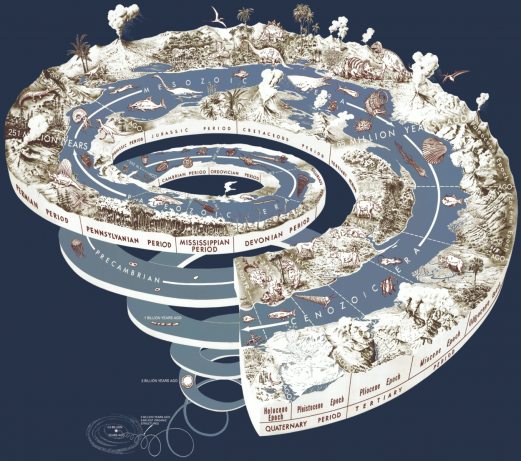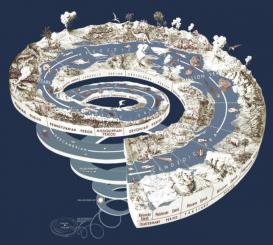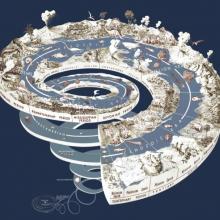The Max Planck Society launched the Max Planck Sabbatical Award program to give distinguished scholars from all over the world the possibility to conduct their research at one of its institutes. This honor was awarded to Sophia Roosth in 2020, who is now affiliated with the Max Planck Institute for the History of Science.
The "Time Scales" Working Group explores how researchers in the natural and exact sciences (such as earth and planetary sciences, astronomy, climatology, glaciology, hydrology, and cosmology) have conceived of, conceptualized, and delineated deep time. We address questions such as: How do researchers define local and global time periods? What methods, techniques, and material supports assist them in marking, cataloging, and (especially) understanding deep time? Further, how can these histories be brought into conversation with political and sociocultural histories of extractivism and other forms of environmental degradation?
Understanding how scientists learn to think about planetary time is currently particularly relevant to pressing scientific and sociopolitical questions regarding the biosphere, anthropogenic climate change, and environmentalism. Our working group seeks to elucidate the histories of how scientists, other experts, and laypeople have made vast expanses of time thinkable, familiar, and palpable.

Spiral diagram of the geological time scale. Credit: US Geological Survey, Department of the Interior/USGS.



